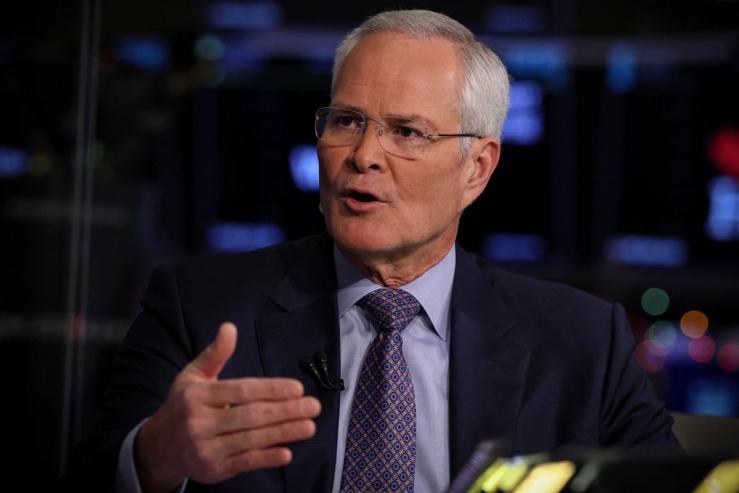The Scoop
The Trump administration’s efforts to score a rollback of European climate rules for the benefit of US oil and gas companies aren’t paying off yet, ExxonMobil’s CEO told Semafor, adding that he was “pessimistic” that the White House could score a breakthrough on behalf of American fossil fuel firms.
Darren Woods said he’s taken his complaints directly to Trump about a set of EU environmental disclosure regulations that he views as trade-crushing overreach, and which were on the table when Energy Secretary Chris Wright met with European officials last week. “Europe is slowly suffocating itself,” Woods said. “They’re trying to build a so-called green economy, that’s not working. And instead of trying to fix that, they’re now trying to drag every American company down.” Trump, who recently completed a trade deal with the EU that hinges on facilitating a massive increase in gas exports, “understands the challenge,” Woods said. But he cautioned: “We haven’t seen the response from European leaders we’d like to see.”
Woods added that he doesn’t share the view of his peer Patrick Pouyanné of TotalEnergies, who said last week that the US is adding “too much” LNG export capacity. “Long-term, the world’s going to need LNG,” Woods said. “We underpin our LNG investments with long-term offtake agreements.” And he called a recent Wall Street Journal article saying Exxon engaged in secret talks to restart its operations in Russia “blatantly false,” adding “we don’t have any plans” for new projects or investments in Russia.
In this article:
Tim’s view
The Trump administration and US energy companies might be ready to dump the climate momentum of the past several years, but Europe isn’t there yet. Its rules around corporate sustainability reporting — which, if implemented in their current form, would impose steep fines on any company with business in Europe that can’t show emissions progress across its supply chain — are viewed by some in Brussels as fundamental to the EU’s long-term climate strategy, which top EU climate official Wopke Hoekstra insisted Thursday is still going strong.
Yet within the bloc, that strategy also faces more opposition than ever, as Europeans and their businesses grapple with high energy prices relative to the US. Even the EU’s top energy official, who should ostensibly be the bloc’s biggest energy transition champion, admitted last week that gas “will remain part of Europe’s energy system for decades to come.”
The difficulty for Europe is how to maintain progress on climate, end oil and gas imports from Russia, and manage contentious trade relations with the US at the same time. The Russia goal, and extracting some basic concessions on tariffs, both seem to require more US LNG imports. Yet, as far as Woods is concerned, the LNG goal will be very costly to fulfill if the climate rules stay in place. Brussels may be betting that it has the stronger hand, and that companies like Exxon will have no choice but to bite the bullet and comply with what’s being asked of them at risk of losing access to the European market, which may still be a smaller prize than Asia but is nonetheless critical for avoiding a massive glut of US LNG later this decade. Can Exxon afford to turn that business down? Can it sign on to long-term deals now, as company officials said last week they want to do, with uncertain regulation hanging overhead that could obliterate the economics of any deal? That’s Woods’ dilemma.
He said he’s still in favor of cutting his company’s emissions, but that there are “better ways to achieve it.” Europe’s problem, he said, is that “it’s trapped in an ideology that doesn’t recognize the need to not only address emissions, but continue to support modern living and commerce.” The mild reforms to the reporting rules offered so far, he said, “have at best led to more confusion. They’re really trying to avoid doing what’s right, which is to repeal this legislation and do away with it.”
Notable
- The US Securities and Exchange Commission approved a plan by Exxon to limit shareholder activism. A new proxy voting system will streamline the process for retail investors to back initiatives supported by Exxon managers, making it more difficult for activist proposals to gain support.


